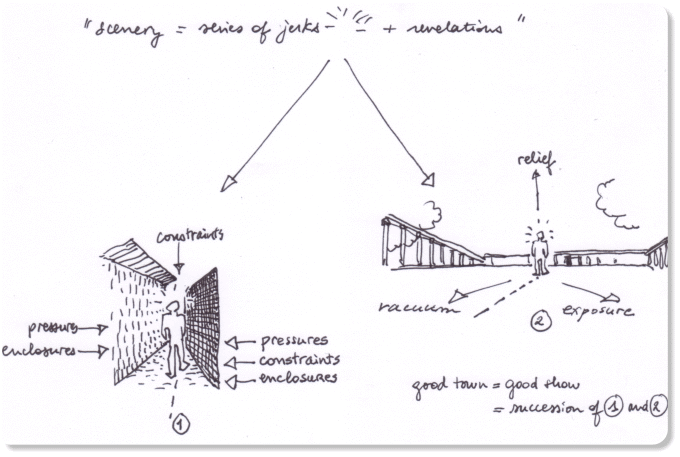|
For him, the scenery, that is, what you see, is a
series of jerks, that is, shocks, surprises, and revelations.
And you see two aspects of that, to the left you have this man
who is absolutely enclosed in a very narrow alley, lots of
constraints, pressures, feeling like he is enclosed, like he is
a prisoner, and all of a sudden, boom, finds himself, or
herself, in a large space, like a big square, with a sense,
phew, of relief, with a sense of freedom, at last, like he can
breathe at last, and, also, perhaps negatively, a sense of
exposure, a sense of vulnerability, a sense that he, or she,
perhaps, is in danger. So for Cullen, a good town is a good
show, a good succession of these various elements of enclosures
and exposures, of feeling constrained and feeling very free.
And I felt that when I was, er,… I was lucky
enough to go to Naples and I stayed there for a while, it's
exactly that, I mean, in Naples, alleys, streets are very very
narrow and very crowded, lots of people, and you feel you're a
prisoner, you want to breathe, and all of a sudden, boom, you
found (sic)* yourself in a very large space, big big square with
people as well, because they are (sic)**pleasant to walk
around and to sit around, and at the same time you have a large
sense of breathing, and I'm told that this is particularly true
of the large Renaissance cities. |


